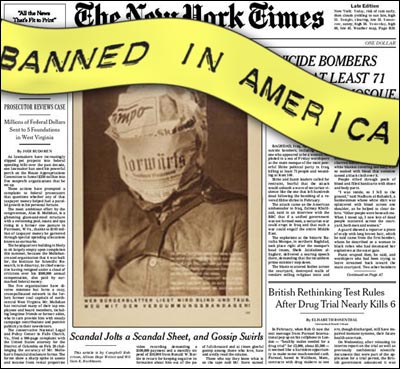 Josh Wolf is in trouble. The San Francisco journalist/activist is in jail on contempt charges for refusing to comply with a federal subpoe0na. The Feds want to see a video he took of a protest where a cop was injured and some property damaged.
Josh Wolf is in trouble. The San Francisco journalist/activist is in jail on contempt charges for refusing to comply with a federal subpoe0na. The Feds want to see a video he took of a protest where a cop was injured and some property damaged.
I’ve been struggling with the merits of this case because, on the one hand, I’m inclined to be sympathetic to an independent media advocate who is under pressure to submit to government demands. On the other hand, this is a difficult case to argue for a reporter’s privilege. The key issue is that Wolf is not protecting an external source, but is declining to provide potential evidence to an event to which he was a witness.
If the videotape in question was given to Wolf in confidence, he would have every right to withhold it and to defy the court order. But this is video he took himself, so who is he protecting? The problem I had with Judith Miller’s claim of privilege was that she was not protecting a source, but that she was a participant in the events on which she was reporting. I don’t believe she had the right to withhold testimony from the grand jury regarding a crime she was helping to facilitate. Of course, there is no allegation that Wolf was involved in anything criminal himself and the state cannot engage in witch hunts.
Despite the conflicting arguments in this matter, I have remained troubled by Wolf’s predicament, and this story from Editors and Publishers has helped me understand why:
Trying to compel journalists to testify is an increasingly popular tactic among federal investigators seeking all types of information. Even the occasional incarceration of reporters is enough to put the squeeze on the news media.
The article goes on to make the point that this case was bumped to the federal courts because California has a strong reporter’s shield law, while the feds have none at all. In addition, there appears to be an escalation of legal pressure being placed on journalists to, in effect, do the work of law enforcement. Lucy A. Dalglish, executive director of the Reporters Committee for Freedom of the Press, said:
“This is the first time it’s been pretty clear to me the federal government is interested in what bloggers do.” And that, “While jailings are infrequent, the number of subpoenas seeking to force reporters to testify has grown.”
The problem here is the trend. As the government seeks to intimidate reporters, it is also silencing the voices of its critics. For an administration that has elevated secrecy to an art form, there is no greater achievement than the dismantling of the first amendment. Josh Wolf may not be the perfect banner carrier for this battle, but he is at least collateral damage and his dilemma should be troubling to anyone who reveres a free press.


 The House is voting on, and will likely pass,
The House is voting on, and will likely pass,